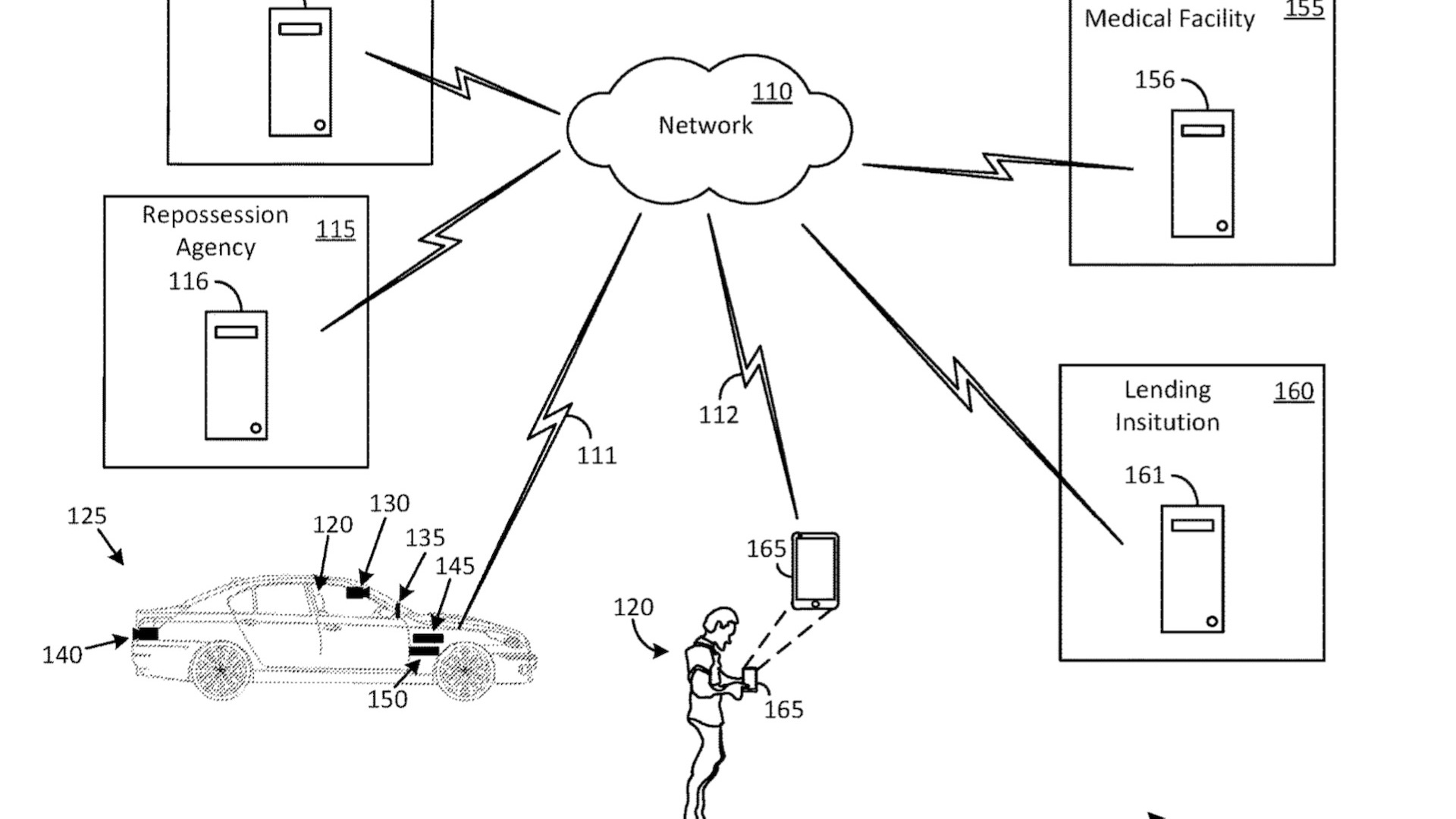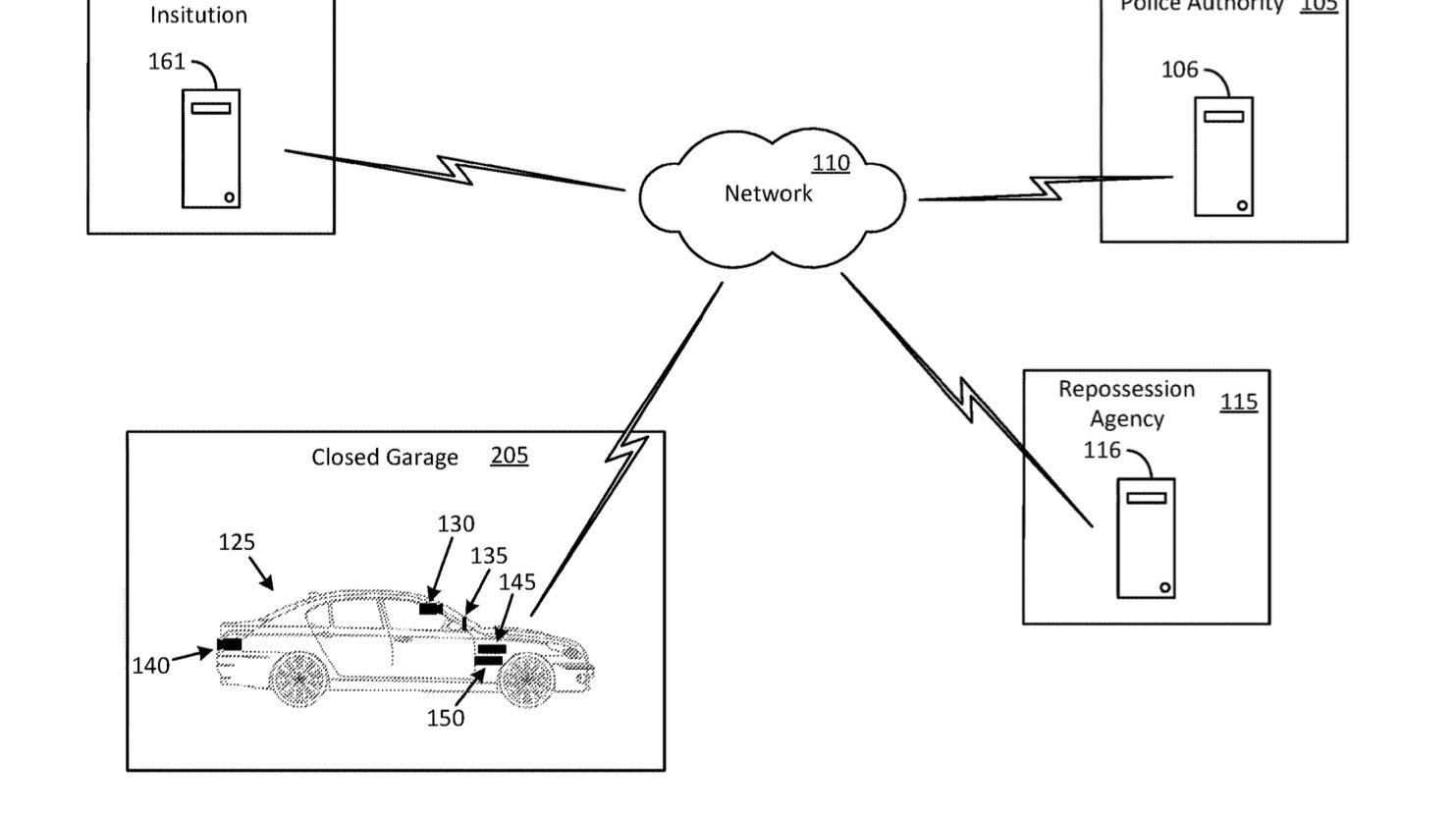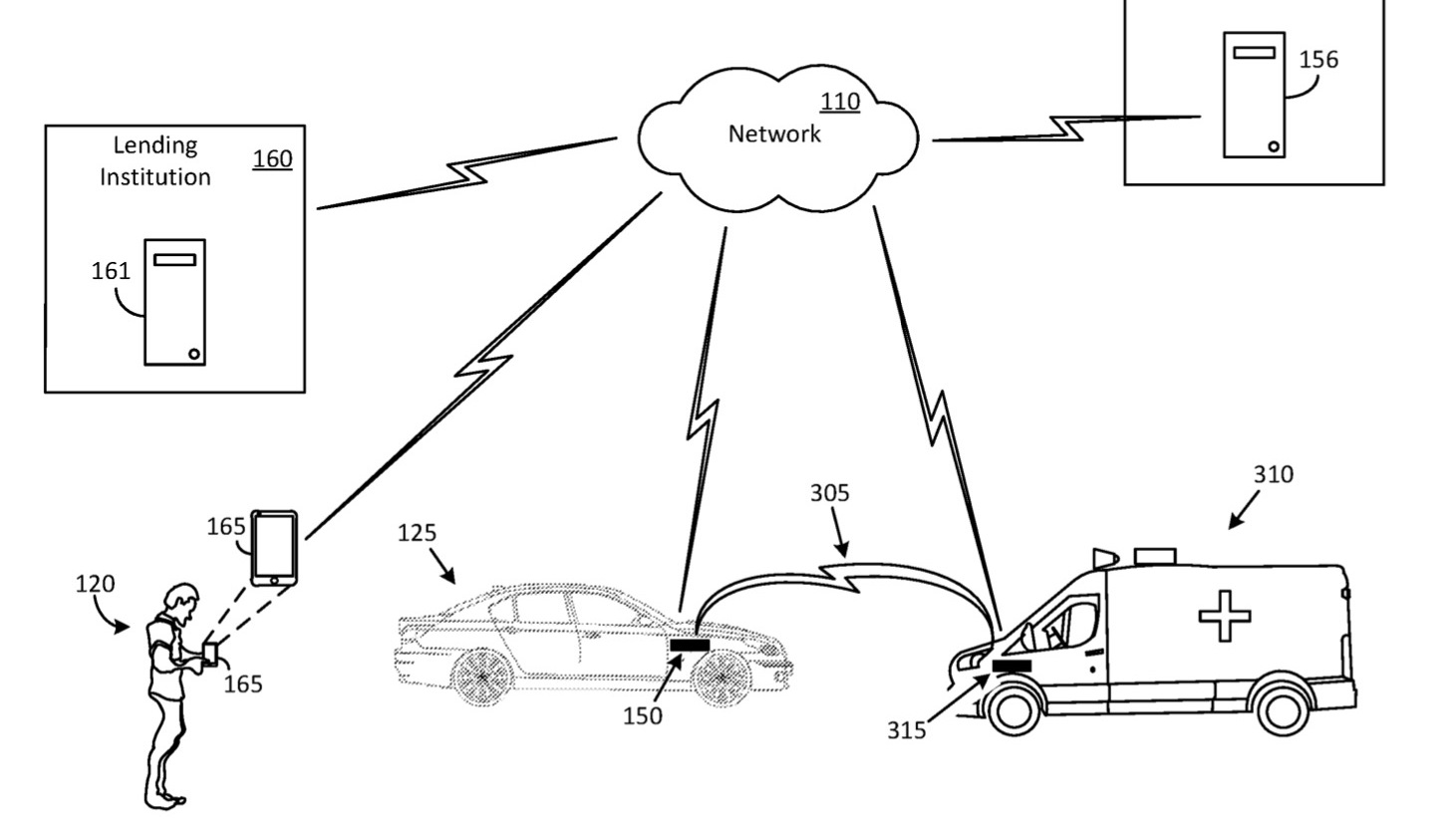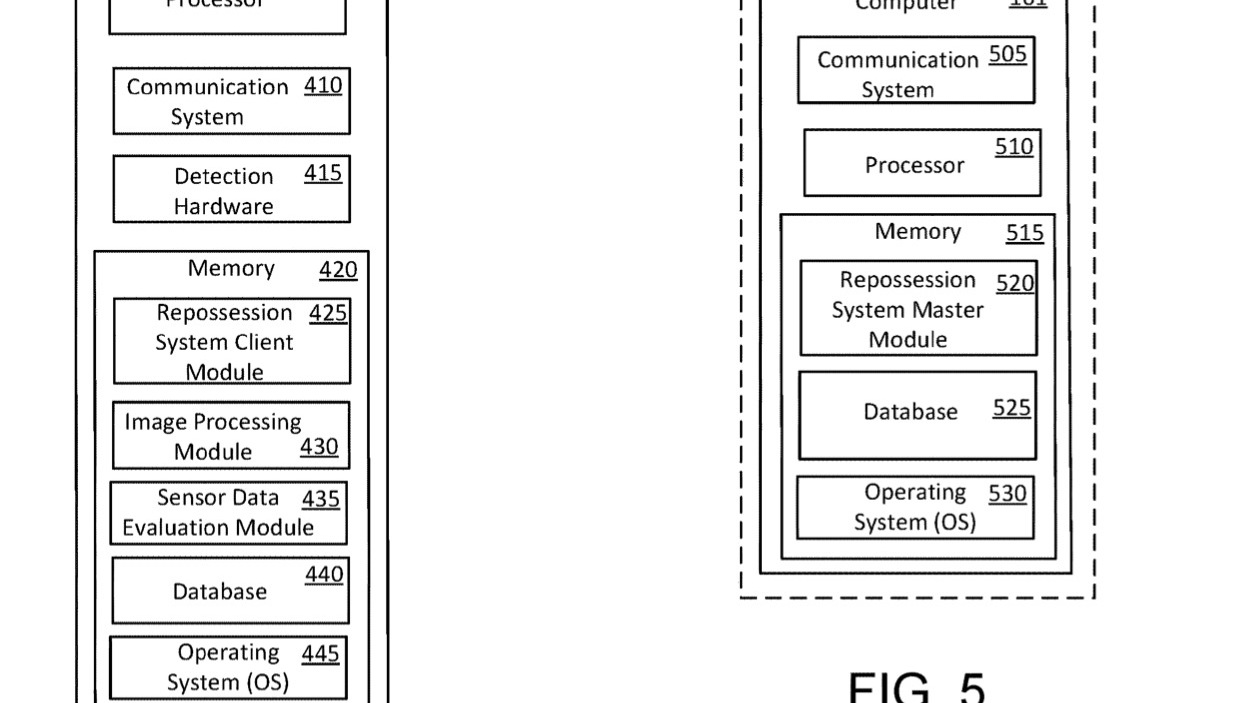Ford is trying to patent technology that would allow cars to repossess themselves.
As first spotted by The Drive, a Ford patent application titled "Systems and Methods to Repossess a Vehicle" was published by the United States Patent and Trademark Office (USPTO) Feb. 23, although it was submitted to the agency Aug. 20, 2021.
The document describes using vehicles' built-in data connections to remotely disable "a functionality of one or more components of the vehicle," which would serve as warnings if the owner has missed car payments.
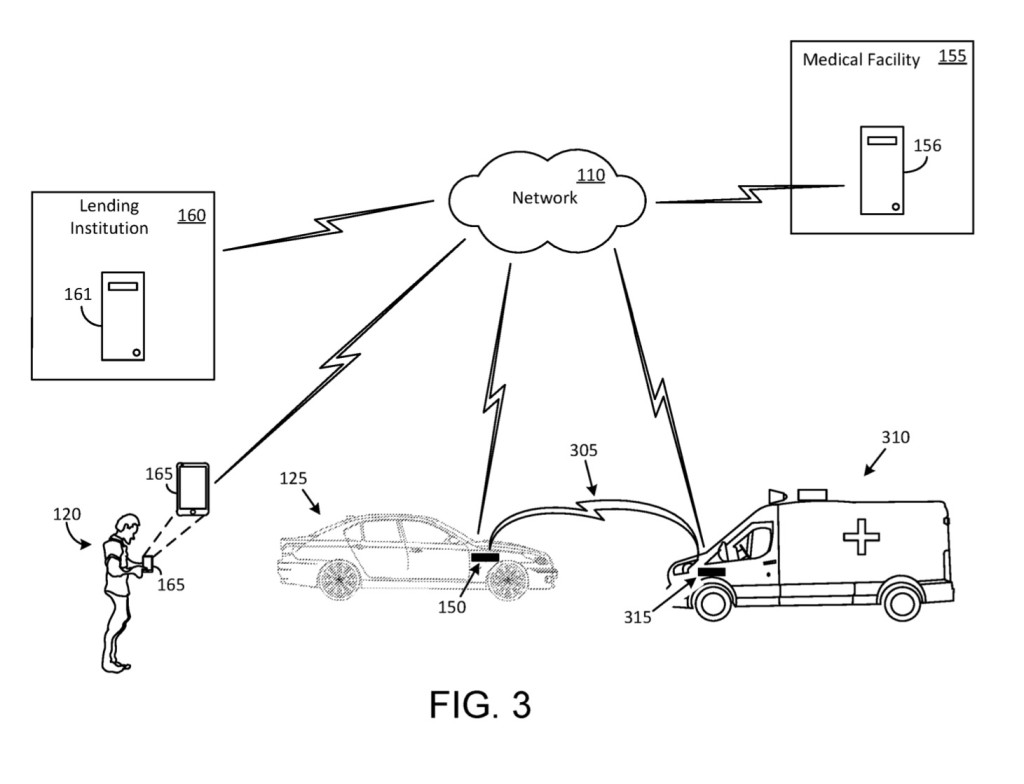
Ford vehicle repossession system patent image
According to the document, deactivations would start with features like "cruise control, automated window controls, automated seat controls, and some components of the infotainment system (radio Global Positioning System (GPS), MP3 player, etc.)," escalating to functions like "the air conditioning system, a remote key fob, and an automated door lock/unlock system." If that's not irritating enough, an "incessant and unpleasant sound" could play "every time the owner is present in the vehicle."
If the bank still hasn't received payment after that, the vehicle could lock the owner out, although the document claims use of the vehicle would be re-enabled for emergency situations, describing use of onboard sensors to judge if the emergency is legitimate.
Sensors can also be used to determine if the vehicle is in a garage, and if it's not, the patent application describes using built-in autonomous-driving capability to aid repossession, either by positioning the vehicle to be more easily picked up by a tow truck, or driving it away.
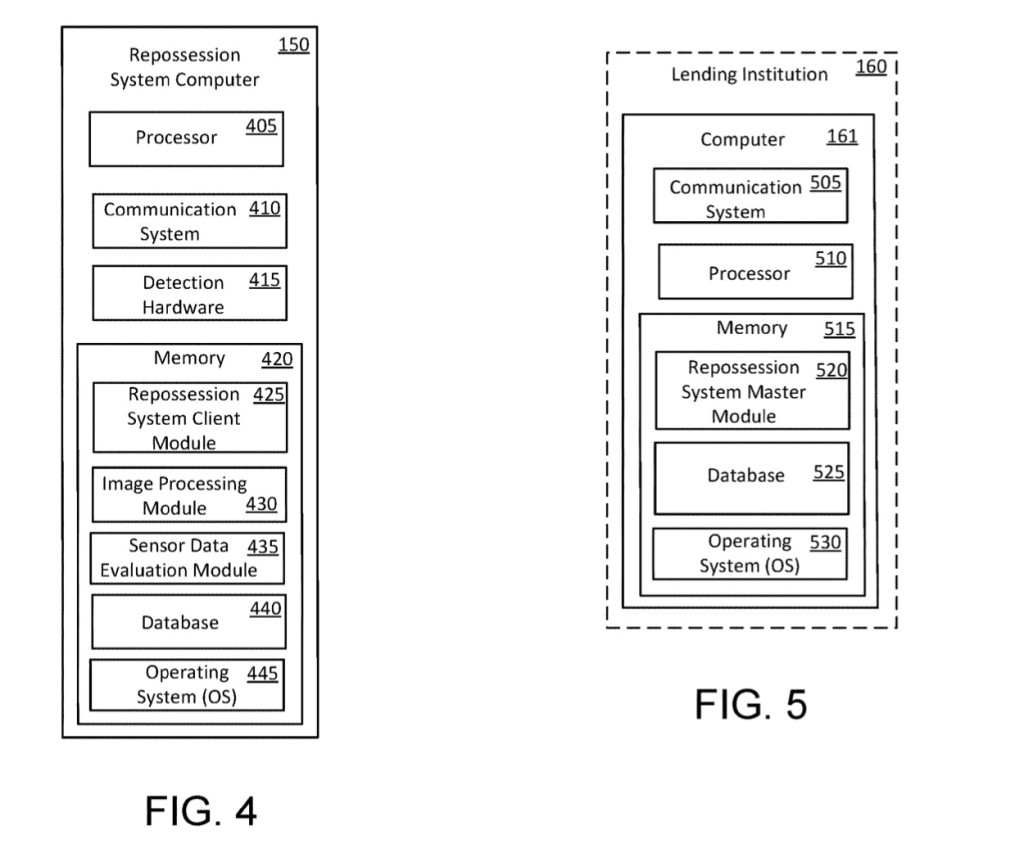
Ford vehicle repossession system patent image
"In some other cases, the vehicle can be an autonomous vehicle and the repossession system computer may cooperate with the vehicle computer to autonomously move the vehicle from the premises of the owner to a location, such as, for example, the premises of the repossession agency, the premises of the lending institution, an impound pound, or any other pre-designated location."
A "pre-designated location" could also include the scrapyard. The lending institution could analyze the market value of the vehicle and, if it's determined to be below a threshold of financial viability for repossession, "the repossession system computer may cooperate with the vehicle computer to autonomously move the vehicle from the premises of the owner to a junkyard."
Such a system would rely on autonomous-driving technology that Ford has throttled back on recently. The automaker, along with Volkswagen, ended further investment in startup Argo AI last year, forcing it to shut down.
A patent application also doesn't necessarily signal production intent. Ford in particular regularly peppers the USPTO with patent applications, albeit not as dystopian-sounding as this one.
